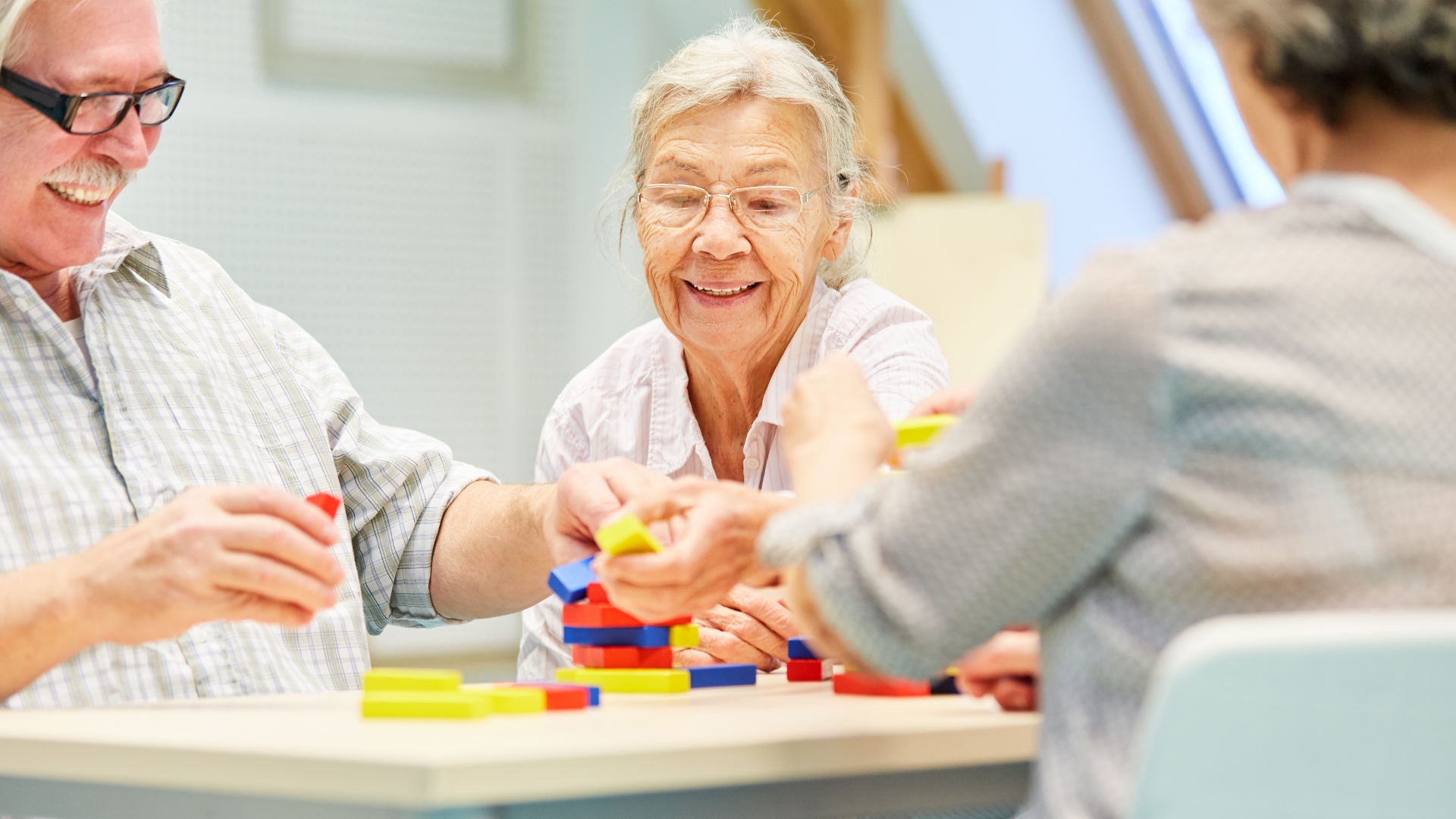Which Activities Enhance Cognitive Health in Dementia Care?
In the realm of dementia care, the pursuit of activities that enhance cognitive health takes center stage. As cognitive functions decline, maintaining and stimulating the mind becomes paramount in fostering a sense of engagement and well-being for individuals facing dementia. This comprehensive guide explores a spectrum of activities designed to boost cognitive health in dementia care. From physical exercises and mental stimulation to creative expression and adaptive technology, we delve into a myriad of approaches that cater to the unique needs of those navigating the challenges of cognitive decline.
Physical Exercise for Cognitive Stimulation
The Link Between Physical Activity and Cognitive Health
Physical exercise is a powerful tool in promoting cognitive stimulation for individuals with dementia. Research consistently demonstrates a positive correlation between regular physical activity and enhanced cognitive function. Engaging in activities such as walking, gentle stretching, and chair exercises not only contributes to overall physical health but also stimulates the brain by increasing blood flow and promoting the release of neuroprotective chemicals.
Tailoring Exercises to Individual Abilities and Preferences
Incorporating physical activities into dementia care requires a personalized approach. Tailoring exercises to the individual's abilities and preferences ensures that the activities are enjoyable and accessible. Whether it's a nature walk, modified yoga, or even dance, the key is to find activities that align with the person's physical capabilities and interests, creating an environment that encourages movement and fosters cognitive stimulation.
Mental Stimulation through Cognitive Activities
Engaging in Puzzles, Games, and Brain Teasers
Cognitive activities such as puzzles, games, and brain teasers provide an effective means of mental stimulation for individuals with dementia. Simple jigsaw puzzles, crossword puzzles, and memory games can be adapted to varying skill levels, offering cognitive challenges without overwhelming the individual. These activities not only promote problem-solving skills but also encourage social interaction when shared with caregivers or fellow participants.

Incorporating Reminiscence Therapy to Stimulate Memory
Reminiscence therapy involves recalling and discussing past experiences, fostering a sense of connection with one's personal history. Engaging in conversations about significant life events, looking through photo albums, or listening to familiar music from the past can stimulate memory and cognitive function. Reminiscence therapy not only provides cognitive benefits but also contributes to emotional well-being by tapping into positive memories and reinforcing a sense of identity.
Creative Expression and Art Therapy
The Therapeutic Benefits of Creative Activities
Artistic expression, including visual arts, music, and other creative outlets, offers therapeutic benefits for individuals with dementia. Engaging in creative activities promotes self-expression, reduces anxiety, and provides a non-verbal means of communication. Art therapy has been shown to enhance cognitive function, particularly in areas related to memory and attention, making it a valuable tool in dementia care.
Exploring Art, Music, and Other Expressive Outlets for Cognitive Enrichment
Whether it's painting, drawing, playing a musical instrument, or participating in group singing sessions, the creative arts provide avenues for cognitive enrichment. Caregivers and activity coordinators can tailor these activities to suit individual preferences and abilities, encouraging a sense of accomplishment and joy. The emphasis is not on artistic prowess but on the process of creative expression and the positive impact it has on cognitive well-being.
Social Interaction and Community Engagement
The Impact of Social Connections on Cognitive Well-being
Maintaining social connections is vital for cognitive health in dementia care. Regular interactions with family, friends, and caregivers contribute to a sense of belonging and emotional well-being. Social engagement stimulates various cognitive functions, including communication, emotional recognition, and interpersonal skills. Group activities, in particular, offer opportunities for shared experiences and a supportive community, reducing feelings of isolation.
Group Activities and Community Involvement for Mental Stimulation
Organizing group activities within a care setting or participating in community events fosters social interaction and mental stimulation. Group activities can range from group exercises and games to book clubs and gardening sessions. The key is to create an environment that encourages social engagement while respecting the individual's comfort level. Community involvement, such as attending local events or volunteering, provides additional opportunities for cognitive stimulation and a sense of connection with the broader community.

Sensory Stimulation for Cognitive Enhancement
Utilizing Sensory Experiences to Engage Individuals with Dementia
Sensory stimulation plays a crucial role in enhancing cognitive function for individuals with dementia. Activities that engage the senses—sight, sound, touch, taste, and smell—can evoke memories, stimulate cognitive responses, and enhance overall well-being. Sensory experiences may include aromatherapy, textured materials, soothing music, and tactile objects, providing a multi-sensory approach to cognitive enrichment.
Tailoring Activities to Address Sensory Preferences and Sensitivities
Individuals with dementia may have varying sensory preferences and sensitivities. Caregivers and activity coordinators should be attuned to these individual needs, tailoring activities to create a comfortable and enjoyable experience. For example, incorporating favorite scents, playing familiar music, or providing soft textures can be tailored to each person's sensory profile, enhancing the effectiveness of sensory stimulation in promoting cognitive health.
Adaptive Technology and Cognitive Apps
Introduction of Technology-Based Tools for Cognitive Stimulation
The digital age has introduced a variety of technology-based tools designed to enhance cognitive stimulation for individuals with dementia. Adaptive technology, including tablets and smartphones, can offer interactive apps and games specifically designed for cognitive enhancement. These tools provide a dynamic and engaging way to stimulate various cognitive functions, including memory, attention, and problem-solving skills.
Exploring Apps and Devices Designed to Enhance Cognitive Function in Dementia Care
Caregivers can explore a range of cognitive apps and devices that cater to the unique needs of individuals with dementia. Memory games, virtual puzzles, and interactive storytelling apps are examples of digital tools that provide cognitive challenges in an accessible format. The key is to introduce technology in a supportive and guided manner, ensuring that the activities are enjoyable and aligned with the individual's cognitive abilities.
Incorporating Daily Life Activities
Integrating Routine Daily Tasks to Maintain Cognitive Skills
Everyday activities play a significant role in maintaining cognitive skills for individuals with dementia. Integrating routine daily tasks, such as setting the table, folding laundry, or engaging in light household chores, provides opportunities for cognitive engagement. These activities not only contribute to a sense of purpose and accomplishment but also help individuals maintain existing cognitive skills and routines.
Promoting Independence and Engagement Through Familiar Activities
Familiarity is comforting for individuals with dementia, and incorporating daily life activities that are familiar and routine can promote a sense of independence and engagement. Activities like cooking simple recipes, tending to a small garden, or arranging flowers tap into the individual's existing skills and interests, providing a sense of continuity and purpose.
Training Caregivers in Cognitive Support Techniques
Importance of Caregiver Involvement in Cognitive Stimulation
Caregivers play a pivotal role in implementing cognitive stimulation activities for individuals with dementia. Training caregivers in effective techniques ensures that activities are tailored to the individual's needs, preferences, and cognitive abilities. Caregiver involvement also strengthens the emotional connection between the caregiver and the person receiving care, contributing to a positive and supportive care environment.
Providing Education and Resources for Caregivers to Enhance Dementia Care
Equipping caregivers with knowledge and resources is essential for effective cognitive support. Education on dementia care, communication strategies, and understanding the progression of the disease empowers caregivers to provide personalized and compassionate support. Access to resources such as activity guides, support groups, and professional assistance further enhances caregivers' ability to create a holistic and enriching environment for individuals with dementia.
Conclusion
In conclusion, the pursuit of activities that enhance cognitive health in dementia care is a dynamic and multifaceted endeavor. From physical exercise and mental stimulation to creative expression, social interaction, and the integration of technology, a holistic approach is essential in addressing the diverse needs of individuals facing cognitive decline. Each person is unique, and activities should be tailored to their preferences, abilities, and comfort levels. For those seeking guidance on incorporating cognitive health activities into dementia care or exploring additional resources, we invite you to contact us today. Our dedicated team is here to provide support, share information, and assist you in creating a care plan that prioritizes cognitive well-being and overall quality of life for individuals with dementia. Together, we can navigate the journey of dementia care with compassion, understanding, and a commitment to enhancing cognitive health at every stage.


